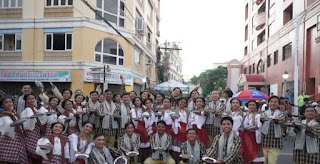Draft #5 Blog post no.5
a. What are the learning/discoveries that I have gained?
During the second quarter, I have delved into various aspects of HTML, such as tags, frames, tables, background colors, links, and fonts. I discovered how each HTML tag serves a specific purpose in structuring and presenting web content. Learning about this helped me understand and learn new things. It taught me how to use tags and organize data systematically, while experimenting with background colors and fonts allowing me to enhance the visual appeal of web pages. Additionally, I learned how to create hyperlinks, which are essential for connecting different web pages and resources.
b. What are the problems/challenges that I have encountered?
It may look "easy" but in reality it's difficult especially understanding the correct syntax and usage of various HTML tags. For me, I struggled with nesting tags properly and ensuring that my code was clean and error-free. Another challenge was designing the tables or texts that were both functional and aesthetically pleasing, like which color of font I should put that would enhance readability and user experience.
c. How did I address these challenges?
As for a lot of activities I have completed or have done in ict, in overcoming these challenges, I sought help and double check my work before saving to ensure that it is error-free. I also practiced coding regularly, which helped me become more familiar with HTML syntax and best practices. In designing tables and selecting colors and fonts, I referred to design principles and guidelines to ensure that my choices were effective.
d. Moving on, I will…
Moving on, I will continue to build and enhance my skills about HTML by exploring more advanced topics. I plan to work on personal projects to apply what I have learned and to further improve my coding abilities. By doing so, I aim to create more dynamic and visually appealing web pages that provide a great user experience and to be able to continue on improving more.
Reference:
< https://inkhive.com/2021/01/28/5-reasons-why-everyone-should-learn-html/ >
< https://www.linkedin.com/pulse/understanding-problem-half-solution-jikku-roy-xk1ec >
< https://www.vecteezy.com/vector-art/26188987-concept-of-overcoming-obstacles-to-achieve-target-goals-overcoming-limits-challenge-ideas-and-abilities-break-through-the-limits >
< https://medium.com/@thecejum/7-benefits-of-seeking-help-from-experts-to-improve-skills-294dd6fa4707 >











































